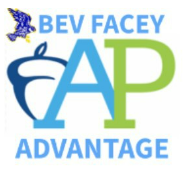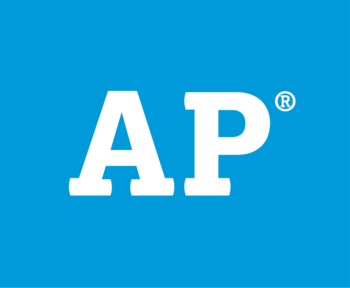Get ready for an exhilarating academic journey with Advanced Placement (AP), one of the world's largest and most prestigious enrichment programs! AP is not just about taking challenging courses; it’s about equipping students for a seamless transition from high school to university.
Imagine joining over 2.6 million high school students from nearly 18,000 schools worldwide who embraced the challenge of AP exams last year. By enrolling in AP courses at Bev Facey, you won’t just be enhancing your high school experience—you’ll also be getting a head start on university-level coursework.
The impact? Your AP courses are recognized by a staggering 3,900 universities across more than 30 countries! This means the knowledge and skills you acquire can open doors to amazing opportunities around the globe. Embrace the challenge, elevate your education, and prepare to thrive in your future!
Experience the Thrill of Advanced Placement at Bev Facey!
At Bev Facey, our Advanced Placement (AP) courses are designed to elevate your academic journey while aligning seamlessly with the Alberta curriculum - just like the -1 stream. That means when you sit for your final exams, you're on the same playing field as all your peers in the -1 stream! But here’s where it gets exciting: our AP courses often move at a faster pace, giving you the chance to dive deeper into the subject matter and explore additional AP content.
With a strong connection between the Alberta curriculum and AP standards, students can engage with advanced material without straying far from provincial guidelines. While formative assessments in PowerSchool may spotlight your achievements on AP-specific topics, rest assured that your final grades will be based solely on Alberta Education criteria. If an AP assessment reflects significant improvement, teachers have the flexibility to incorporate that into your overall grade—recognizing your hard work and progress!
Why Choose the Advanced Placement Exam?
Taking the AP exam can open doors to incredible opportunities! Universities and colleges across Canada value AP scores, often translating them into significant percentage replacements for your final grades during the admissions process. Achieving a score of 4 or 5 can earn you credits at A-level universities. This means you could bypass foundational classes and jump right into advanced studies!
As post-secondary institutions increasingly adopt holistic admissions practices, students who tackle the challenges of AP courses stand out. Demonstrating your ability to handle rigorous coursework enhances your application, making you a more appealing candidate. Plus, those pursuing the AP Capstone Diploma often catch the eye of university admissions officers, positioning themselves as exceptional prospects.
Diverse AP Offerings at Bev Facey
Bev Facey proudly offers 15 dynamic AP courses, including:
- Art & Design
- Biology
- Calculus AB
- Chemistry
- Computing Science Principles
- Computer Science A
- English Language and Composition
- English Literature and Composition
- French Language and Culture
- Music Theory
- Physics 1
- Physics 2
- Research
- Seminar
- Statistics
To ensure a strong foundation, each AP course has a preparatory "AP prep" (honors) course leading into it. For example, students aiming for the Grade 12 Biology 30 AP course are encouraged to take Science 10AP and Biology 20AP.
Embark on a transformative educational experience with Advanced Placement at Bev Facey, where ambition meets opportunity!
Questions? Please contact our AP® Coordinator Adam Lawlor
AP Advantage: How Advanced Placement Classes Shape Future Scholars


